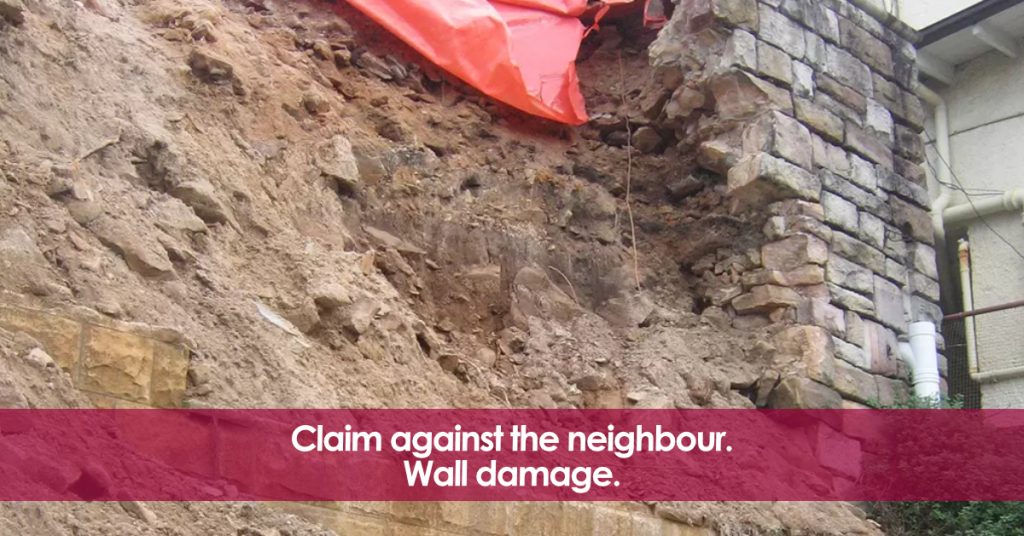In today’s article, we share a recent court success achieved by our law firm in a claim against the neighbour for non-contractual liability. We represented the owners of a plot of land whose neighbours were demanding €14.000 in compensation for damages to a retaining wall. They also sought the execution of repair works on the wall to prevent future damage.
Contractual and Non-contractual Liability. Statute of Limitations. Civil Code.
The Spanish Civil Code (C.C.) foresees two types of liability: contractual and non-contractual. Contractual liability arises when a party breaches obligations established in a contract. Non-contractual liability (regulated in articles 1.902 and 1.903) involves the obligation to repair damages caused to another party by action or omission. Even when the damage has been caused without a direct contractual relationship.
Regarding the statute of limitations for non-contractual liability claims, the Spanish C.C. sets a limit of 1 year from the date the harmed party became aware of the damage and the identity of the responsible party. As we have explained in previous articles, there are cases where the calculation of this period has certain peculiarities (such as continuous damages).
Lawsuit Claim and Response to the complaint. Legal Representation for our clients.
In their claim against the neighbour, the plaintiffs demanded economic compensation and the execution of repair works. They argued that our clients had modified the land by adding gravel, increasing its weight and altering the ground level. They claimed this caused damages to the retaining wall of their plot.
We countered these accusations by arguing that there was no direct link between the addition of gravel and the damage based on the following:
- The pre-existing damages were due to poor maintenance by the plaintiffs.
- The amount of gravel added did not significantly alter the ground level.
- Moreover, the claim was time-barred (statute of limitations of 1 year)
Favourable Court Ruling.
The court’s decision was decisive on several key points of the discussion. You can check the complete ruling by clicking HERE
Firstly, the court determined that the claim was time-barred. Our expert report confirmed that the gravel was added to the land in June 2018, while the extrajudicial claim was not filed until May 2021. This time difference far exceeded the 1 year statute of limitations set by the Spanish Civil Code.
Regardless of the above, the judge concluded that there was insufficient evidence to support the claim that the addition of gravel by our clients had caused the alleged damages. The evidence showed that the amount of gravel added was minimal and did not significantly alter the ground level or create a load that adversely affected the plaintiffs’ wall. This lack of causal connection was a crucial factor in the court’s decision to dismiss the claim and order the plaintiffs to pay the legal costs.
Conclusion.
At White Baos Lawyers, we specialise in protecting our clients’ rights and providing effective legal advice. If you are facing a similar legal situation (wall damage, claim against the neighbour, damage from construction works, etc.), do not hesitate to contact us. We will review your case and offer expert legal advice.
The information provided in this article is not intended to be legal advice but rather to convey information related to legal issues.
Carlos Baos (Lawyer)
White & Baos.
Tel: +34 966 426 185
E-mail: info@white-baos.com
White & Baos 2024 – All Rights Reserved.
